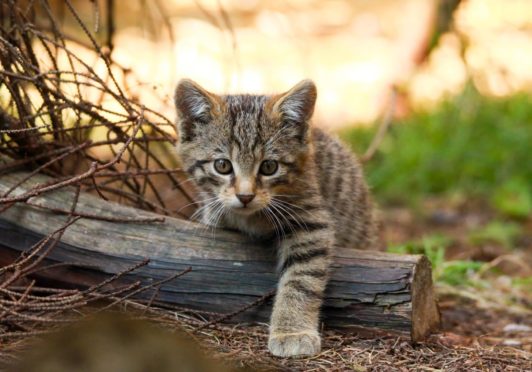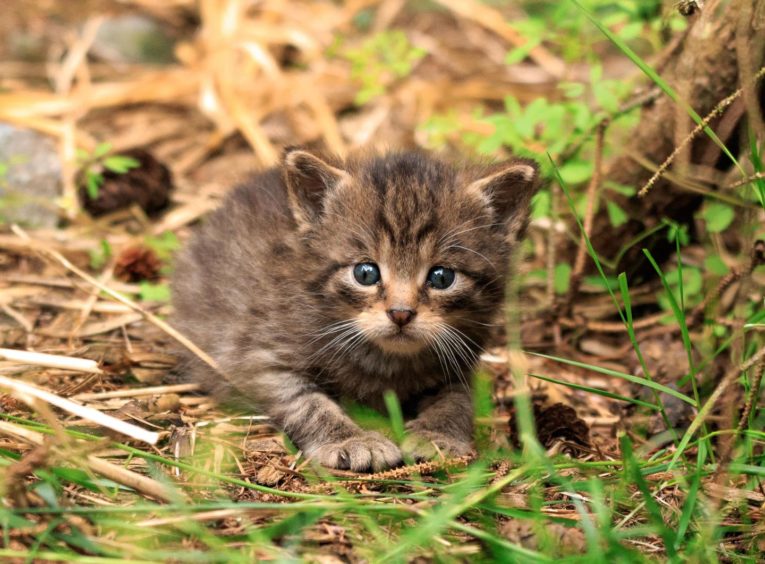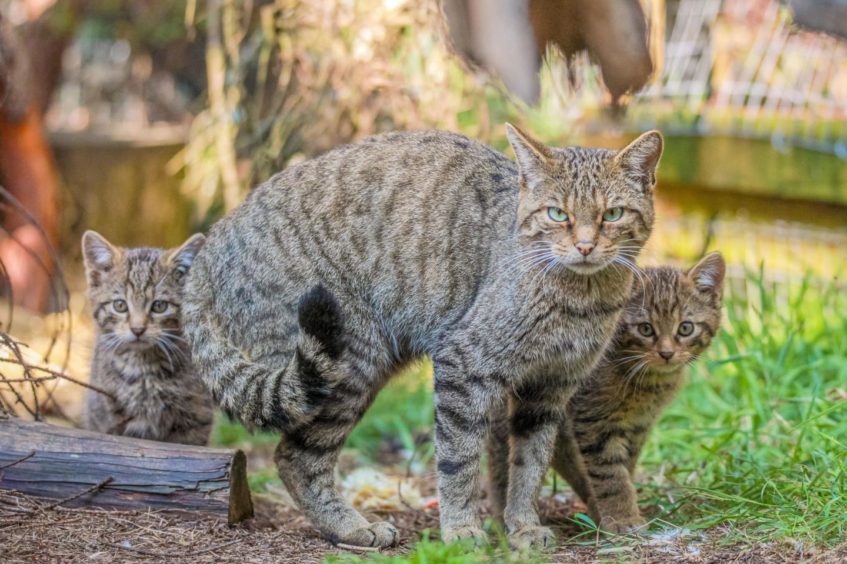A pair of wildcat kittens has been born in the Highlands as part of a conservation breeding programme to help save the iconic species from extinction.
The kittens were born around the end of June at the Aigas Field Centre, near Beauly.
The centre forms part of the wider European partner project Saving Wildcats, involving the Royal Zoological Society of Scotland (RZSS).
The latest kittens were born to breeding pair Brora and Fergus, who also produced one male kitten named Beinn last year.
The animals’ sex is not expected to be known until October and they have not yet been named.
Happy arrivals have ‘uplifted’ rangers
Conservationist Sir John Lister-Kaye, who founded the Aigas Field Centre in 2011, said: “We are overjoyed to announce the arrival of two wildcat kittens. The newest members of the Aigas Wildcat Conservation Breeding Programme will be joining the 10 adult cats that the field centre already holds.
“Through this difficult time, the arrival of the kittens has uplifted the staff and guests. Our rangers and academic placement students have worked exceptionally hard to provide our wildcats, through rain and shine, with an incredibly high standard of care.
“We are thrilled that their efforts have been rewarded by the birth of these two very happy and healthy kittens.
“We believe the kittens to have been born around the end of June, with our first glimpses of the pair leaving their den box in the middle of July. Since then, the kittens have become more adventurous and have been seen out with mother, Brora, playing and suckling in the sunshine.”
The Scottish wildcat is the only wild member of the cat family to survive in Britain. The same subspecies of wildcat found in continental Europe, it has been separate since the end of the last ice age, around 9000 years ago.
Recent research found that there is no longer a viable wildcat population living in Scotland, and the so-called “Highland Tiger” is now on the brink of extinction.
The greatest threat to the species is posed by hybridisation with feral and domestic cats, while other threats include historical and accidental persecution, disease and collisions with vehicles on roads.
Threats to wildcat survival must be tackled
Aigas Field Centre currently has 10 adult wildcats in its breeding programme. The RZSS has created a molecular studbook so only the best wildcats are paired to breed, with its “matchmaking” based on genetics and appearance – the cats’ pelage score.
Second-time mother Brora and Fergus both have pelage scores of nearly 90%. Their new kittens will stay with Brora in their woodland enclosure until they are around six months old, when they would naturally disperse in the wild.
Brora’s firstborn, Beinn, is due to be relocated to Devon later this year to play his part in the nationwide breeding programme.
Sir John added: “The wildcat in Scotland is now considered functionally extinct in the wild. Individuals left in the wild are too spread out to maintain a viable population. The main threats are habitat loss and hybridisation between wildcat and domestic/feral cats, which causes the wildcat genes to become diluted.
“The future of the wildcat in Scotland is very much dependent on addressing these threats and to produce genetically diverse and strong individuals in captivity that are suitable for release into the wild. The work of the nationwide breeding programme is therefore vital to secure the wildcat’s future.”
The Aigas Field Centre, which does not receive government funding, has set up an adoption scheme and crowdfunding page towards the cost of the wildcats project.


